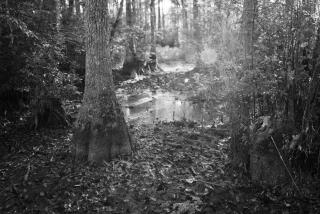A Look at noteworthy addresses in the Southland
- Share via
On the Function of History “The study of history is not only a discipline, it is itself a political act and part of the political struggle. . . .
“The effort to define the past is part of the struggle to control society itself. . . .
“Along with historians, for better or worse, all sorts of people, including political leaders, publicists, press pundits, clergy, textbook publishers, school teachers and others, are involved in the manufacturing and marketing of a history whose function quite often is not to enlighten, but to indoctrinate. . . .
“Those who write history have an impact on it. They help control history’s course by defining its dominant themes and influencing our understanding of what happens.
“Conversely, those who make history, especially those who occupy elite policy positions, often manipulate the materials needed for recording it. They will destroy or repress information. They will introduce distortions at the point of production or at the point of origin well before the history is written or even played out. . . .
“We saw the fabrication at the point of origin . . . (with) the canonization of Richard Nixon. To see representation after representation, image after image, and not a mention of the fact that Richard Nixon carpet-bombed Cambodia and Laos and Vietnam, leading to the death of tens of thousands of people. . . . . (He) escalated that war. . . . But we heard, ‘He wasn’t perfect. He made mistakes at Watergate.’ Mistakes? . . . So you see, right there, it’s being filtered out. Fifty years from now any historian who consults the newspapers around Richard Nixon’s death is not going to get an inkling of the whole dimension of his policies.”
On Historical Perspective “Poor people have neither the time nor money to produce historical tomes. . . . If there is a variety of perspectives in a society, the one most likely to prevail is not necessarily one most representative of the people, but of the select few who are materially endowed. . . .
“So we have what I call dominant history . . . the writing of history has been and still is principally an elitist undertaking. A privilege of the victor written from within the court, the church, the government, the academy. . . . It was the anonymous masses of people that gave us civilization, that gave us whatever productivity and comforts that we have. It wasn’t the elite, it wasn’t the rulers; they were too busy expropriating surplus value to build their castles, to wage their wars . . . whose goal is to expropriate the wealth, the labor, the land and the resources of people so that they could live better and better. . . .
“To the princes and presidents we owe . . . the rapacious expropriation that has enriched the few and impoverished the many. . . .
“The successful control of history can be measured in the results. U.S. citizens seem to know very little about real history. . . . That’s not a function of ignorance . . . it’s a function of misinformation. . . . The powers that be understand the importance of inventing reality for the past as well as for the present. . . .
“If we are lied to with impunity, we are robbed of the first condition of a democratic citizenry: how the present can help us understand the past, and the past understand the present. . . .
“History need not bore us, history need not imprison us, but it can liberate our understanding so that we can become not its victims, but its active agents.”


